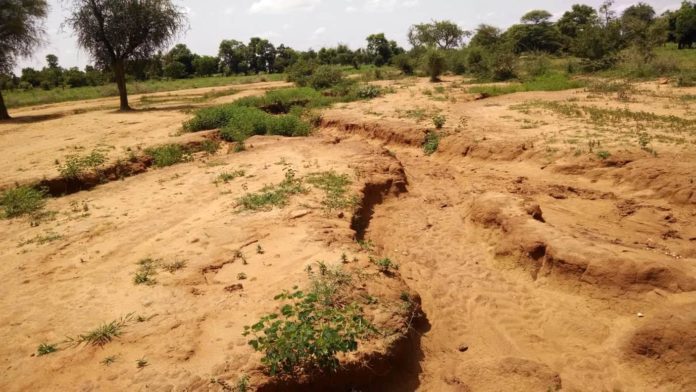The Food and Agriculture Organisation (FAO) of the United Nations has introduced a new technology of restoring degraded soils in Sub Saharan Africa back to productive soils.
Dr Moctar Sacande, coordinator of FAO’s Action Against Desertification programme spoke during the launch ceremony and said the technology creates large half-moon catchments ready for planting seeds and seedlings, boosting rainwater harvesting tenfold and making soil more permeable for planting than the traditional – and backbreaking – method of digging by hand.
“Restoring degraded land back to productive good health is a huge opportunity for Africa. It brings big social and economic benefits to rural farming communities. Africa is currently losing four million hectares of forest every year for this reason, yet has more than 700 million hectares of degraded land viable for restoration. Dryland areas face increasing and combined threats of climate change, population growth, global demands for livestock, and new difficulties posed by the Covid-19 pandemic,” said Dr Moctar Sacande.
Benefits
The half-moon is a traditional Sahel planting method which creates contours to stop rainwater runoff, improving water infiltration and keeping the soil moist for longer. This creates favourable micro-climate conditions allowing seeds and seedlings to flourish.
The Delfino plough is also hugely efficient. One hundred farmers digging traditional half-moon irrigation ditches by hand can cover a hectare a day, but when the Delfino is hooked to a tractor, it can cover 15 to 20 hectares in a day. After the area is ploughed, the seeds of woody and herbaceous native species are then sown directly and inoculated seedlings planted.
Among the immediate benefits of the project is reduced pressure on existing forest land even with the rise in populations. At the same time, women-the bulwark of rural labour- are spared the back-breaking work of digging tree planting holes.








